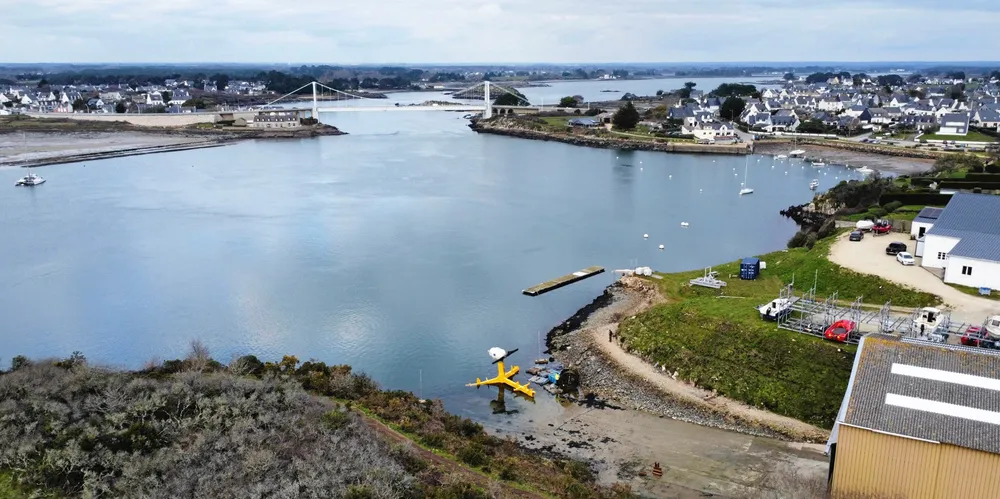'Whole new market' | French tidal power back in the water with Nova Atlantic estuary pilot
Small 50kW version of Scottish technology developer's design installed off Brittany in regional sector's first deployment in over a decade

Small 50kW version of Scottish technology developer's design installed off Brittany in regional sector's first deployment in over a decade
